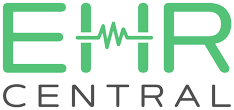10 Strategies to Prevent Billing Errors in Your Primary Care Practice
Billing errors can have significant consequences for primary care practices, leading to financial losses, compliance issues, and even legal liabilities. Implementing effective strategies to avoid these errors is essential for maintaining the financial health and integrity of your practice.

In this article, we’ll explore ten strategies to help you prevent billing errors and optimize revenue cycle management in your primary care practice.
1. Stay Updated with Coding Guidelines: Keep your staff informed about the latest updates and changes to coding guidelines, including CPT, ICD-10, and HCPCS codes. Regular training sessions and educational resources can help ensure that your team is proficient in accurate coding practices.
2. Document Thoroughly and Accurately: Encourage providers to maintain detailed and comprehensive documentation of patient encounters. Accurate documentation not only supports proper coding but also ensures that services rendered are appropriately billed.
3. Verify Patient Insurance Coverage: Before providing services, verify patients’ insurance coverage and eligibility to avoid billing errors related to incorrect insurance information. Implement processes to regularly update patient insurance information in your practice management system.
4. Utilize Technology Solutions: Invest in billing and practice management software that automates billing processes and provides built-in error-checking mechanisms. These tools can help identify and rectify billing errors before claims are submitted.
How EHRCentral enhances your healthcare practice?
5. Conduct Regular Audits: Perform regular audits of your billing processes and claims to identify potential errors or discrepancies. Address any issues promptly to prevent recurring billing errors in the future.
6. Establish Clear Billing Policies: Develop and communicate clear billing policies to patients, including information about co-pays, deductibles, and payment options. Ensure that your staff is trained to communicate these policies effectively to patients.
7. Monitor Denials and Rejections: Monitor denials and claim rejections closely to identify patterns or trends that may indicate underlying billing issues. Analyze the root causes of denials and implement corrective actions to prevent recurrence.
8. Train Staff Effectively: Provide ongoing training and education for billing staff to keep them updated on industry best practices, regulatory changes, and compliance requirements. Well-trained staff are better equipped to identify and prevent billing errors.
9. Implement Internal Controls: Establish internal controls and checks and balances within your billing processes to prevent errors and detect irregularities. Assign responsibilities clearly and ensure that multiple staff members are involved in critical billing tasks.
10. Stay Compliant with Regulations: Ensure compliance with relevant healthcare regulations, such as HIPAA, Stark Law, and Anti-Kickback Statute, to avoid penalties and legal liabilities associated with billing errors. Stay informed about regulatory updates and implement necessary changes to maintain compliance.
By implementing these strategies, primary care practices can minimize billing errors, improve revenue cycle management, and enhance overall financial performance. Remember that proactive prevention is key to avoiding costly billing mistakes and maintaining the financial health of your practice.





